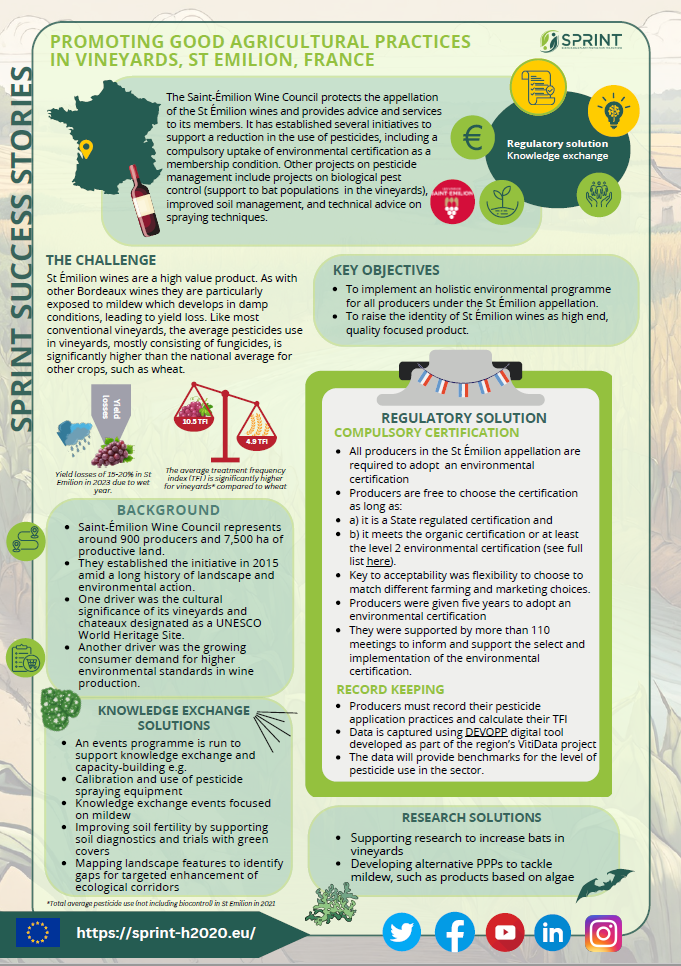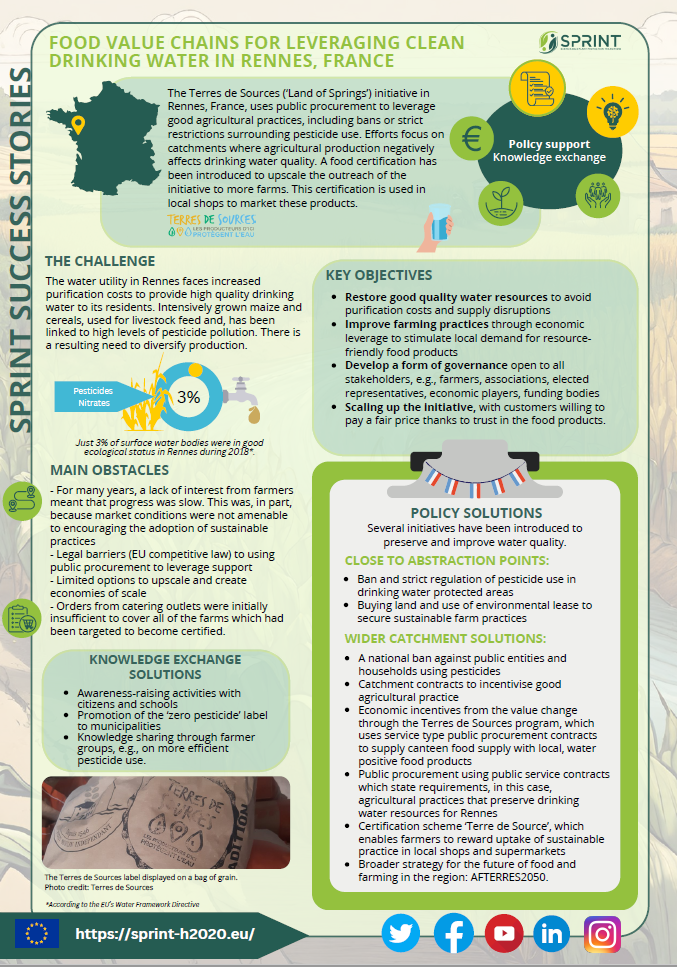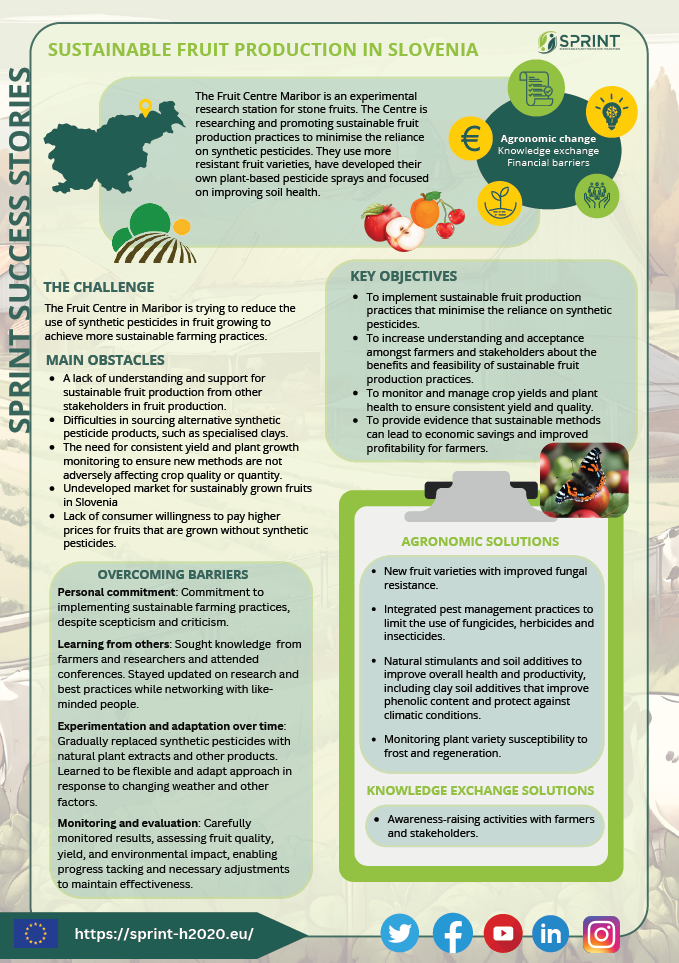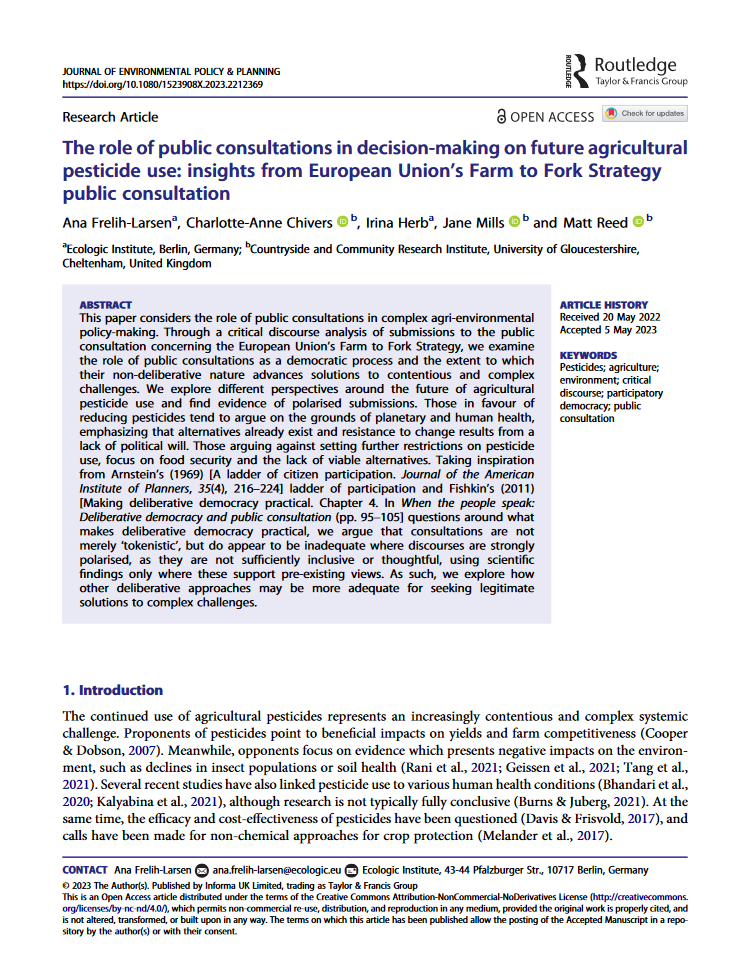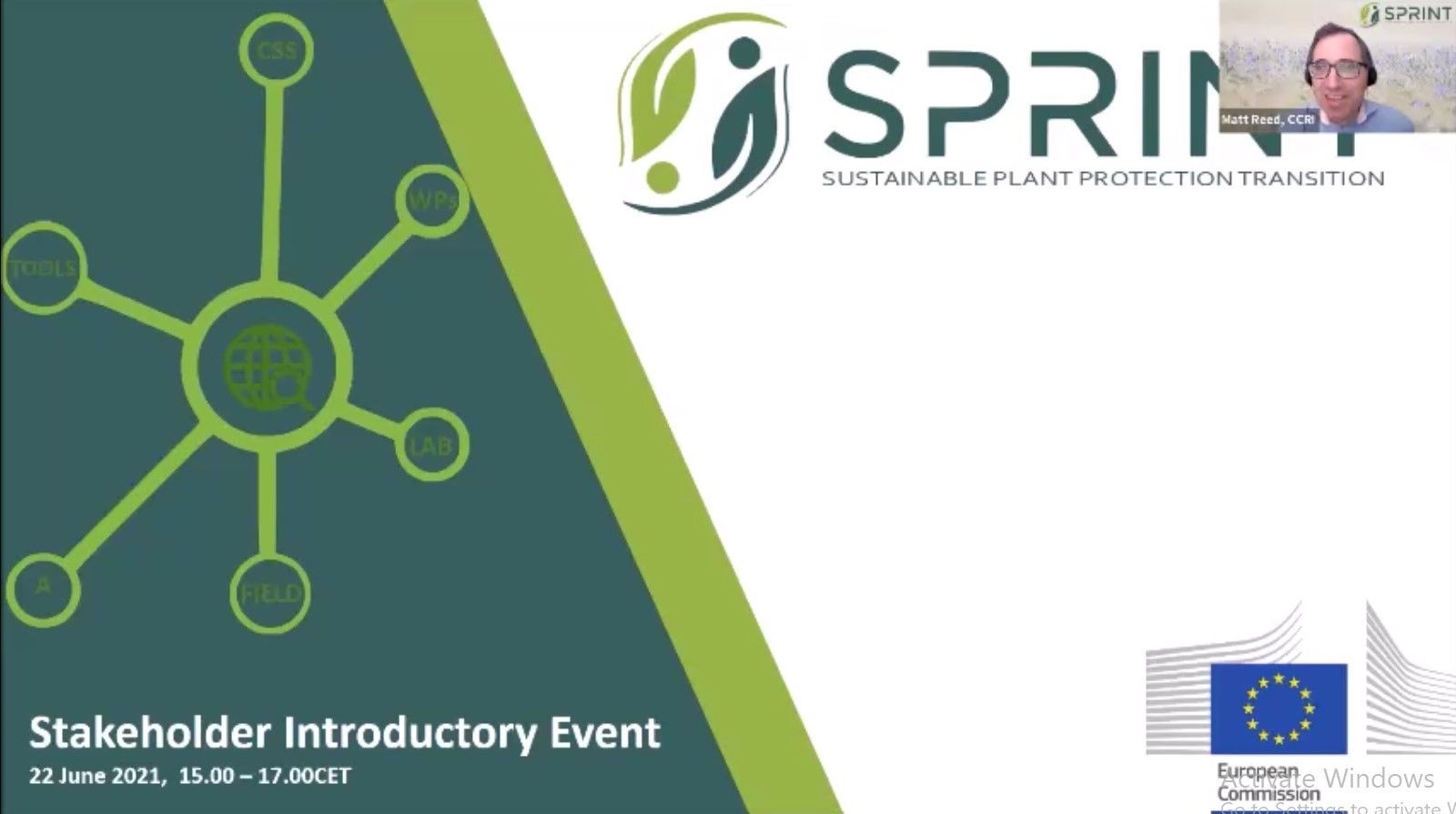Organic Dairy Farming in Slovenia
- Publication
- Citation
Glavan, Matjaž et al. 2024: Organic Dairy Farming in Slovenia. SPRINT fact sheet.
A family farm in Brežice, Slovenia, took the leap into organic agriculture to overcome high input costs, low economic viability, and limited control over their business. The SPRINT project is studying this farm to understand how the transition to organic farming – by eliminating synthetic pesticides and fertilizers, introducing crop rotations, and experimenting with new feeding strategies – can lead to a more sustainable and profitable operation. This case study highlights the challenges and successes of the farm in adopting an organic approach.
The Challenge: Barriers to Organic Farming
The transition to organic farming presented significant challenges for the farm in Brežice. In addition to adverse weather conditions and limited financial resources, the farm faced a lack of markets for uncommon crops, increased weed pressure, and fungal diseases like Fusarium in cereal crops. These factors made economic viability difficult and rendered the move to organic farming a risky but necessary decision.
Sustainable Solutions: Crop Rotation and Knowledge Exchange
The farm implemented various sustainable practices to address these challenges. These included growing disease-resistant varieties, introducing crop rotations to break disease cycles in the soil, and reducing the need for protein feed by adapting grazing practices. Knowledge exchange between farmers and researchers played a crucial role in developing and implementing new organic methods. Through continuous experimentation and adaptation to local conditions, the farm improved its sustainability and profitability.
Results and Lessons Learned: A Holistic Approach
The transition to organic farming allowed the farm to reduce input costs, stabilize yields, and improve the health of soil and livestock. A significant achievement was the dramatic reduction in pesticide use while maintaining productivity. The case study demonstrates that the transition to organic farming can be economically viable and environmentally beneficial. However, expanding market reach and improving infrastructure remain challenges for broader adoption of organic practices.
Conclusion
Organic dairy farming in Slovenia, as implemented by the family farm in Brežice and studied within the SPRINT project, shows that sustainable and economically viable organic farming can be achieved through research, collaboration, and continuous adaptation. The farm serves as a model for other farmers facing similar challenges, highlighting the need for support and resources to ensure successful conversion.
